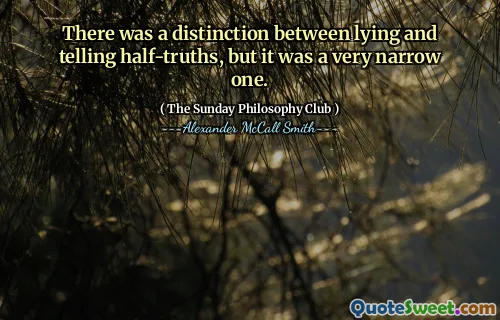
Perhaps it is better to be a machine that does its duty than a flesh - and - blood person who will not, for a dead truth is better than a live falsehood.
This quote emphasizes the importance of consistency and integrity in one's actions and beliefs. It suggests that fulfilling one's duty, even if mechanical or impersonal, is preferable to living in denial or perpetuating falsehoods that might seem easier or more comfortable in the moment. The metaphor of being a machine underscores the virtue of discipline, reliability, and unwavering commitment to truth and duty. It raises prompts about the nature of morality: is it better to adhere strictly to what is right, regardless of personal feelings or social implications, or to pursue comfort and false assurances that may ultimately lead us astray? The phrase 'a dead truth is better than a live falsehood' hints at the destructive power of lies and deception. A truth that has become forgotten or suppressed can be a steady, unchanging beacon, providing clarity and grounding. Conversely, a falsehood that is alive—ongoing, persuasive, perhaps emotionally loaded—can deceive and mislead, causing harm and confusion. The quote invites reflection on the consequences of prioritizing internal consistency and authenticity over transient comfort. It underscores that confronting the harsh realities and embracing truth, even when difficult, is an ethically superior choice. This perspective aligns with philosophies that value integrity and moral duty above superficial appearances or convenience, emphasizing that genuine authenticity and fidelity to one's principles ultimately uphold the moral fabric of society.






